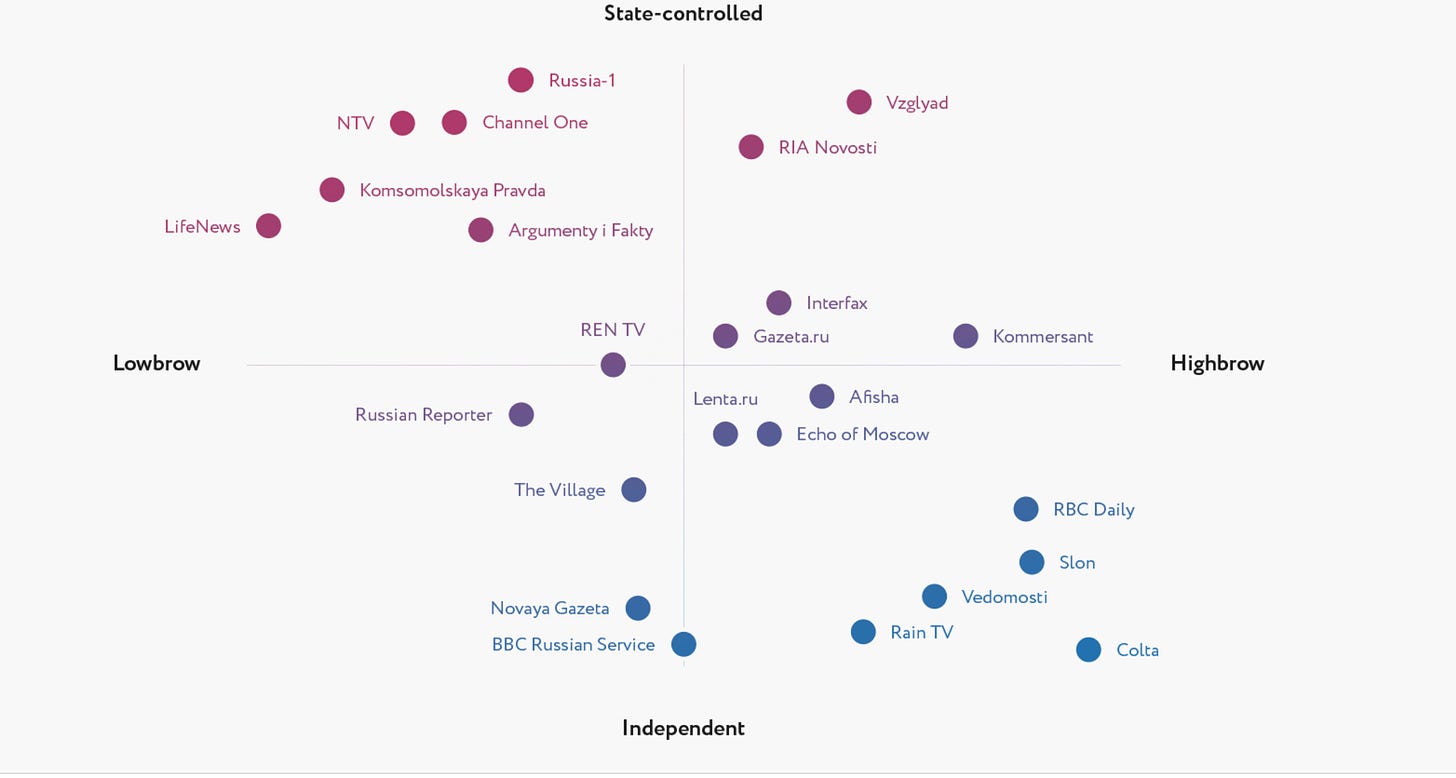From Claire—I’ve written before about the revolution in machine translation. It’s one of the great technological achievements of our century. I’ve also written of my puzzlement that so few people take advantage of the opportunity it affords us to look directly into countries that only recently were a riddle (wrapped in a mystery, inside an enigma, etc.)
This is the paradox of 2021. It has never been easier to communicate with and understand the rest of the world. But the public is less informed about that wider world than it was when news of it travelled over telegraph wires.1
Anyone with an Internet connection can now learn about the rest of the world with a speed that would have been unimaginable only a few decades ago—and for free. The Internet is a geyser of information, much of it accurate; accessing it requires no effort, no expense, no trip to the library.
Nothing stops you from reading, say, Komsomolskaya Pravda to learn more about how Russians see the world. You don’t need to wait for a friend to bring a print copy back from Moscow, or trek off to a library to read archived copies on microfiche. Most astonishingly, you can read it without knowing word of Russian.
But your search engine believes it’s irrelevant to you. It will never show up in your news feed.
Yesterday, we published an article about Russia by the French scholar Nicolas Tenzer along with a reading list of English-language articles about Russia. I thought it might interest you, today, to see what Russians are saying about the same events. I’ve used machine translation to curate a representative selection from the Russian media. I present it with no editorial comment; I encourage you to follow the links to assess for yourself whether it’s a fair selection.
When you’re done reading, I’d be curious to know, first, if you found this interesting and would like to see us do this for other languages; second, if you feel it gives you any fresh insight into Russia. Did anything surprise you? If so, what struck you in particular?
Russian Media Map
Courtesy of the Calvert Journal:
In “First Russian-Constantinople”
How the magazine describes itself: “The ideological department of Constantinople is a factory of Russian meanings. We do not reveal undercover intrigues, we do not “reinvent bicycles” and we do not “discover America.” We return lost meanings to obvious things. Russia is a great Orthodox power with a thousand-year history. The Russian Church is the foundation of our statehood and culture. Moscow is the Third Rome. A Russian is one who sincerely loves Russia, its history and culture. The family is the union of a man and a woman. And their children. Many children are desirable. People’s conservation is the key task of the state. A task that cannot be solved without a coherent ideology.”
Keep reading with a 7-day free trial
Subscribe to The Cosmopolitan Globalist to keep reading this post and get 7 days of free access to the full post archives.





